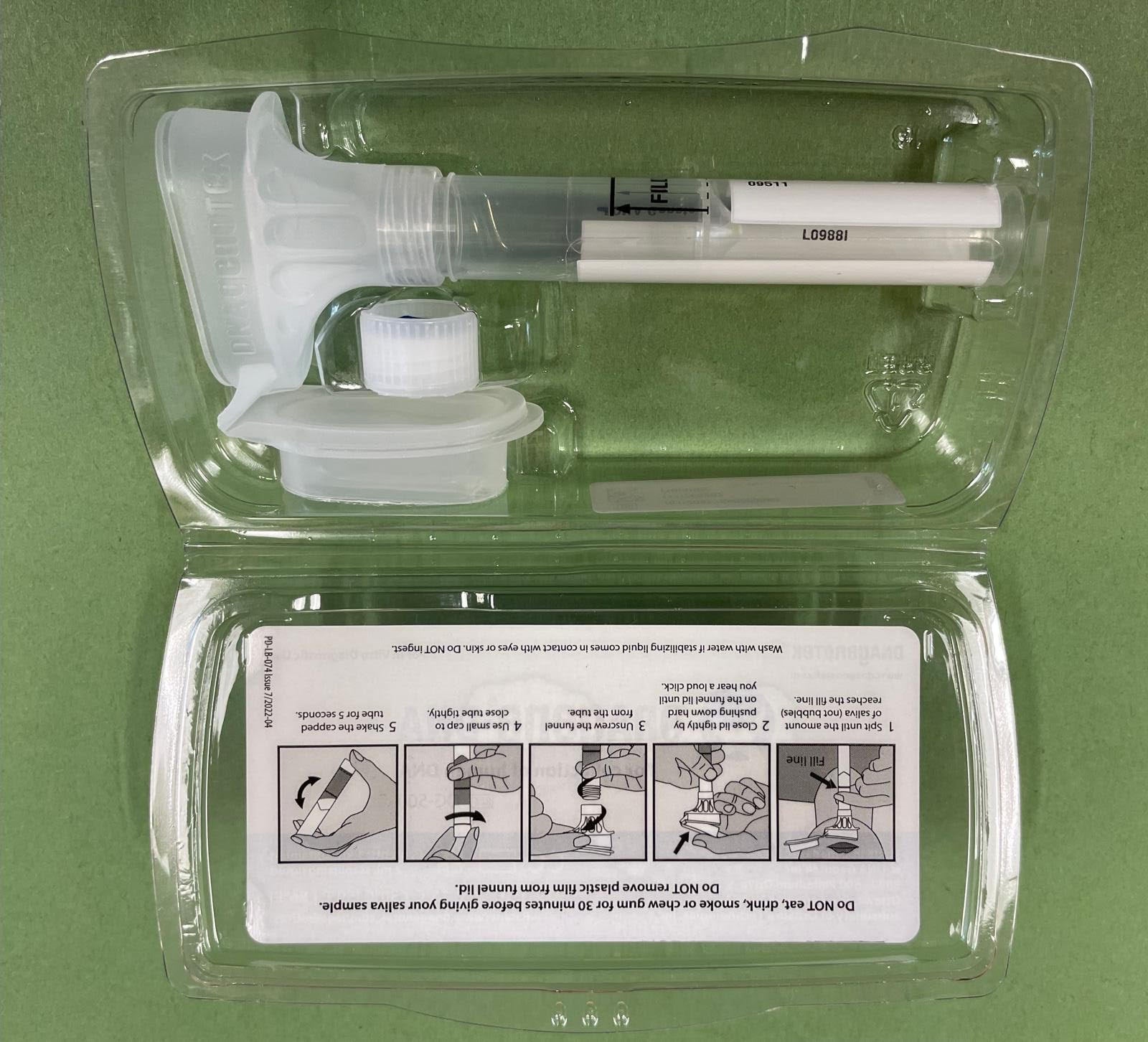‘Holy grail’ at-home spit test for prostate cancer raises hopes of reducing heightened risk faced by Black men
Exclusive: ‘Unfortunately, most of the genetic research that had been published focused only on people of white European ancestry,’ expert tells The Independent

Your support helps us to tell the story
From reproductive rights to climate change to Big Tech, The Independent is on the ground when the story is developing. Whether it's investigating the financials of Elon Musk's pro-Trump PAC or producing our latest documentary, 'The A Word', which shines a light on the American women fighting for reproductive rights, we know how important it is to parse out the facts from the messaging.
At such a critical moment in US history, we need reporters on the ground. Your donation allows us to keep sending journalists to speak to both sides of the story.
The Independent is trusted by Americans across the entire political spectrum. And unlike many other quality news outlets, we choose not to lock Americans out of our reporting and analysis with paywalls. We believe quality journalism should be available to everyone, paid for by those who can afford it.
Your support makes all the difference.A new at-home spit test for prostate cancer could allow thousands of men to receive earlier diagnoses – including Black men who were previously excluded from such tests.
The NHS is launching a £2m trial of the new saliva test, led by researchers at the Institute of Cancer Research, which will examine whether it can speed up the diagnosis of prostate cancer.
Spit tests calculate the risk of prostate cancer from DNA extracted from saliva, and have previously indicated a higher accuracy than the standard blood test – the prostate-specific antigen (or PSA) test – for men with a high risk of developing the disease. Those identified as high risk will be recalled for further screening.
The original saliva test, trialled in 2016, could only be used for white people of European ancestry as the genetic data was not available for Black and Asian men, despite Black men being twice as likely to develop the disease.
Dr Elizabeth Bancroft, nurse consultant in oncogenetics research at the Institute of Cancer Research and the Royal Marsden NHS Foundation Trust, told The Independent that this breakthrough is “important”.
“Unfortunately, most of the genetic research that had been published focused only on people of white European ancestry,” she said.
“When we first started, the test that we developed was based on this historical research and, for that reason, to be confident that it could be used safely and accurately, we could only offer it to people of white European ancestry, because that’s what the research was based on. That was, unfortunately, the major limitation of that study.”

She added: “The really good news now is that, over the last decade or so, there’s been this huge drive internationally to increase genetic diversity in research. As a consequence of that, the test we’re now using means we’re now able to safely use it in people of other ethnicities – and be sure about the accuracy of it within a research setting.”
When asked about the extent to which racial bias played a part in historical Eurocentric genetic research, Dr Bancroft acknowledged that the combination of this and medical distrust among marginalised communities has amounted to a “double-edged sword”.
“There was a historical bias in the way research was conducted in the past. For the patients that we work with, injustices that have happened in the past are still at the forefront of their minds,” she said.
When it comes to diseases like cancer, early detection is crucial, as illnesses may be more treatable at that stage.
Co-funded by the National Institute for Health and Care Research and the Office for Life Sciences, the study aims to detect prostate cancer at an earlier stage in more people.
Fear and mistrust of clinical trials are particularly prevalent among ethnic minorities in the UK. A 2024 survey by Ipsos found that less than half of Black and Asian adults in the UK were willing to participate in a clinical trial (41 per cent), compared with 58 per cent of the general population, with cited reasons including mistrust of medical staff and pharmaceutical companies, plus discomfort in clinical settings.

“There were biases present [in historical research], but even if people had more access to research, would they have wanted to take part in it? We hope that things are moving forward now in terms of breaking down those barriers,” Dr Bancroft added.
Health secretary Wes Streeting hailed the test as the “holy grail for the future of healthcare”.
It is estimated that over 52,000 people will be diagnosed with prostate cancer over the next year, and the Institute of Cancer Research believes that this test could identify up to 12,350 people earlier, saving the NHS millions and saving lives in the process. GPs will offer the test to their patients, and those identified as higher risk will be offered prostate cancer checks.
As well as facing a heightened risk of developing prostate cancer and at a younger age, Black men are also commonly diagnosed at a later stage due to numerous factors, from lack of awareness to healthcare discrimination.
A recent poll by Prostate Cancer Research indicated that almost a quarter of Black men attempting to get tested in the past year reported being blocked by a GP.
The study now aims to recruit 1,000 men aged between 40 and 55 from diverse ethnic groups, and, if successful, the test may be implemented across the NHS.
Speaking to The Independent, Dr Naomi Elster, director of research and communications at Prostate Cancer Research, said: “This study is an exciting step forward in making sure that future developments work for a wider group of people, so that we have less invasive and more accurate ways to diagnose prostate cancer for everyone.”
Join our commenting forum
Join thought-provoking conversations, follow other Independent readers and see their replies
Comments